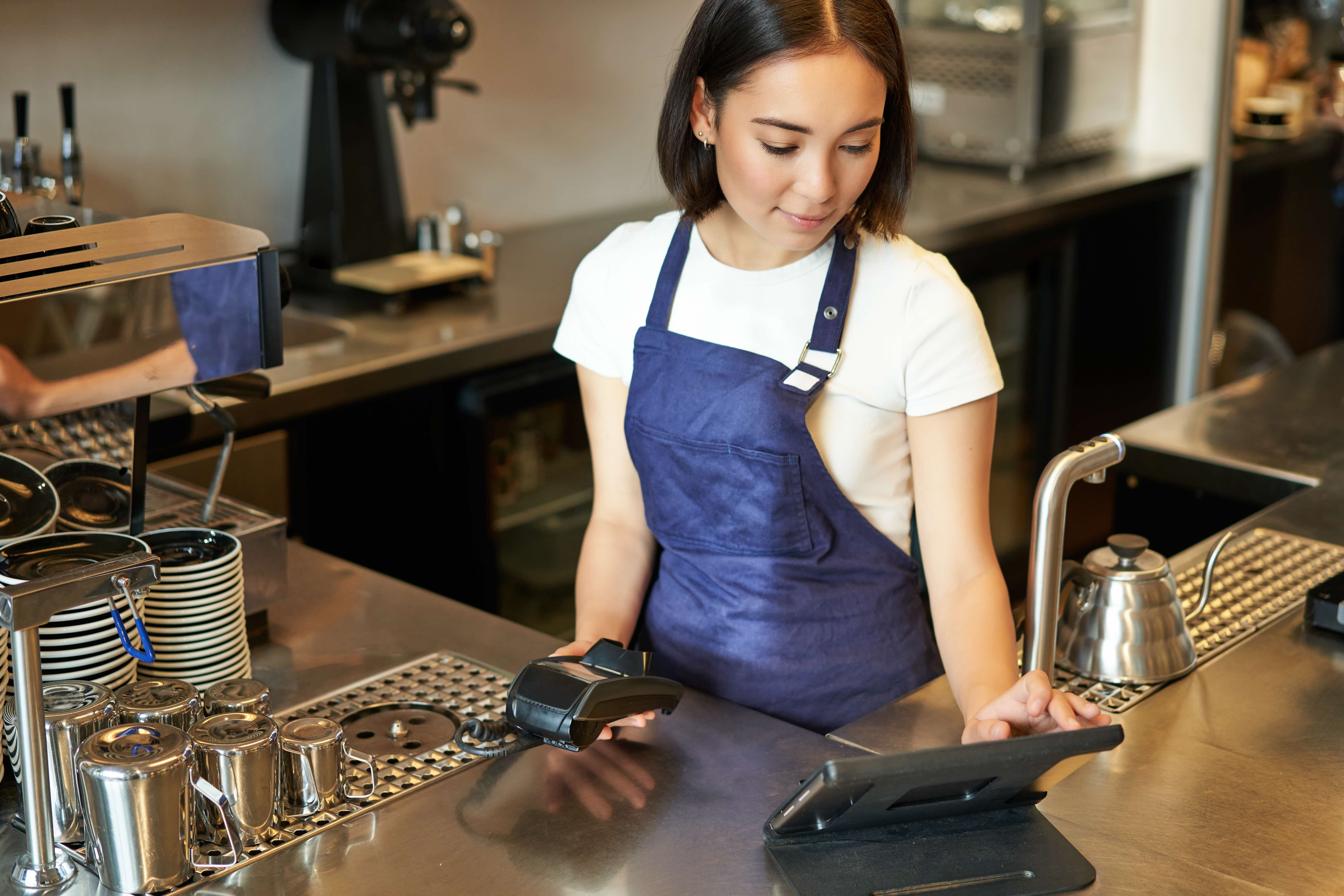Top 5 Restaurant POS Systems in Malaysia 2025
Discover the best restaurant POS systems in Malaysia for 2025. Compare real-time POS systems, POS data analytics, and POS solutions to optimize your F&B business.

Contents
- Top Restaurant POS in Malaysia | 1. Eats365
- Eats365's Pros
- Eats365's Cons
- Why Choose Eats365
- Top Restaurant POS in Malaysia | 2. StoreHub
- StoreHub's Pros
- StoreHub's Cons
- Why Choose StoreHub
- Top Restaurant POS in Malaysia | 3. Zeoniq
- Zeoniq's Pros
- Zeoniq's Cons
- Why Choose Zeoniq
- Top Restaurant POS in Malaysia | 4. Xilnex
- Xilnex's Pros
- Xilnex's Cons
- Why Choose Xilnex
- Top Restaurant POS in Malaysia | 5. Hubbo
- Hubbo's Pros
- Hubbo's Cons
- Why Choose Hubbo
- Choosing the Right Restaurant POS in 2025
As the restaurant industry in Malaysia evolves, investing in a reliable restaurant POS is essential for maximizing your ability to manage orders, payments, and customer engagement. Whether you run a small café or a multi-outlet chain, a good POS system does more than just improve operations in real-time but also brings data analytics to gather valuable insights for better decision-making. It’s a system that forms one of your key pillars of success.
But with various options available on the market, it can be tricky to decide on which POS solution to get.
Worry not, we’re here to share the top five restaurant POS systems in Malaysia you can choose from for 2025.
Read more: Ultimate Guide to Choosing the Best Restaurant POS System in Malaysia (eats365pos.com)
Top Restaurant POS in Malaysia | 1. Eats365
Eats365's Pros:
-
Cloud-based system with real-time data access and offline mode to prevent disruptions.
-
Flexible payment options, supports multiple online & off-line payment methods including cash, credit cards or e-wallets.
-
Multi-language & multi-currency support for Malaysia’s diverse workforce.
-
Integrated loyalty programs and CRM for customer retention.
-
Smart table & kitchen management – Floorplan customization, queue tracking, and Kitchen Display System (KDS) integration for smoother operations.
-
Multi-location scalability for expanding features and locations as your business grows.
-
Available in 32 different markets & countries.
Eats365's Cons:
-
Advanced features like kiosks and delivery integrations require expansion modules at additional costs.
-
Not customizable beyond the available modules.
Why Choose Eats365
Pricing: Software starts from RM 99/month, no additional hardware cost (use your own iPad).
Best For: Restaurants of all sizes, from small cafés to large franchises, looking for a cloud-based, scalable POS solution with strong analytics, CRM, and seamless front-to-back operations.
Eats365 offers an all-in-one, cloud-based restaurant POS system with modular scalability and cloud-based flexibility that suits just about any restaurant, no matter the size.
For Malaysian businesses, the Eats365 POS’s multi-language support makes it a great option for working with diverse teams and handling customers, while its offline mode ensures uninterrupted operations, even in areas with unstable internet connections. The built-in CRM and loyalty programs also help retain customers and increase repeat business, making it an ideal system for businesses looking to grow customer engagement.
However, small-scale food stalls or businesses with very basic needs may find Eats365 too feature-rich, as some advanced functions require expansion modules that could increase costs. Even so, for businesses planning to expand or requiring a robust, all-in-one solution, Eats365 is a strong investment that supports long-term growth and operational efficiency.
Read more: Best Restaurant POS System in Malaysia for F&B | Eats365 (eats365pos.com)
Top Restaurant POS in Malaysia | 2. StoreHub
StoreHub's Pros:
-
Offline mode ensures continuous order-taking and transactions during internet disruptions.
-
QR Order & Pay enables self-service ordering, reducing labor costs.
-
Integrated payment support for accepting DuitNow QR, credit/debit cards, and major e-wallets (GrabPay, Touch 'n Go, etc.).
-
Real-time analytics & reports – Tracks sales performance, peak hours, and bestseller items for data-driven decisions.
StoreHub's Cons:
-
Advanced reporting and CRM features are only available in higher-tier plans.
-
Less suited for enterprise-level restaurants needing deeper customization and automation.
-
Limited third-party integration options beyond payment processing compared to other POS providers.
Why Choose StoreHub
Pricing: Software from RM1,290/year, hardware from RM1,450.
Best For: Small restaurants, cafés, and growing businesses looking for a POS system with easy setup, automation, and QR-based payments.
StoreHub’s restaurant POS system is built for small and medium-sized restaurants, cafés, and fast-casual dining outlets looking for an affordable, automation-driven POS system with a focus on QR-based ordering, digital payments, and ease of use.
Feature-wise, the StoreHub POS is ideal for smoothening out the overall operations of a small to medium-sized establishment. Its offline mode ensures businesses can keep running even when internet connectivity is an issue, and its simple, intuitive interface makes staff training quick and hassle-free.
However, larger restaurant chains or high-end dining establishments may find its customization options limiting, especially when it comes to advanced analytics, CRM features, and third-party integrations.
Read more: StoreHub POS system
Top Restaurant POS in Malaysia | 3. Zeoniq
Zeoniq's Pros:
-
Strong inventory management system that allows owners to minimize waste, ensure product availability and enhance efficiency.
-
Centralized system for managing multiple businesses and franchises simple and efficient.
-
Seamless integration to their Customer Experience Management (CXM) system, allowing for comprehensive consumer management.
Zeoniq's Cons:
-
More focused on retail than restaurant businesses.
-
Traditional POS system structure, some functions are not available on mobile POS devices.
-
May lack deep customization features for complex restaurant setups.
Why Choose Zeoniq
Pricing: Software from RM 1,800/year, hardware from RM 2,980
Best For: Medium to large restaurants and retail businesses that look for traditional POS setups.
Zeoniq’s features focus on automation, and customer-centric solutions, making it a versatile platform for retail businesses. Its target audience spans small-scale vendors like food trucks to larger operations like restaurant franchises, with an emphasis on those looking to streamline operations, integrate digital sales channels, and enhance customer experiences through technology. However it's traditional POS structure may be less compatible to mobile POS devices and less deep customizable features for restaurants' complex setups may become main concerns for F&B business owners.
Read more: Zeoniq Point-of-Sales (POS) system

Top Restaurant POS in Malaysia | 4. Xilnex
Xilnex's Pros:
-
Comprehensive loyalty program for CRM
-
Delivery platform integration: Grab Food, Food Panda, Shopee Food, Live Order
-
Automated marketing tools such as SMS campaigns for promotions and customer engagement.
Xilnex's Cons:
-
Windows based system, different structure than cloud.
-
Limited functionality on iPad versions
-
User Interface (UI) is not comprehensive
-
Functions are more on retail than restaurant businesses
Why Choose Xilnex
Pricing: Software starts from RM108/month. Offers hardware bundle that starts with RM3,199 with 6-month free subscription.
Best For: Large restaurant chains, franchises, and multi-location businesses needing an enterprise-level windows-based POS system.
Xilnex is famous for its omnichannel solutions for retail businesses, particularly in Southeast Asia. Its strengths include a comprehensive feature set, remote accessibility, offline functionality, and sales & inventory management tools. However there are potential drawbacks include its Windows-based core, a possible steep learning curve, unclear integration details, and dated UI/UX design. There is also concerns for their POS functions including inventory management or e-commerce are more suitable for retails than restaurants.
Read more: Xilnex Point-of-Sale for Restaurants
Top Restaurant POS in Malaysia | 5. Hubbo
Hubbo's Pros:
-
Cloud-base structure with real-time reports.
-
Comprehensive and easy-to-use system
Hubbo's Cons:
-
Upfront hardware costs make initial investment higher than software-only solutions.
-
Less suitable for high-end dining or fine-dining establishments. More for quick-service restaurants, casual dining, and food delivery-focused businesses.
-
Limited advanced analytics
Why Choose Hubbo
Pricing: Starts from RM990/year (hardware costs separate)
Best For: Restaurants focused on online ordering, food delivery, and automation, seeking an affordable long-term POS system.
Hubbo offers a versatile, cloud-based POS system that’s ideal for restaurants that prioritize online ordering, food delivery, and automation. Its seamless integration with major food delivery platforms makes it ideal for cloud kitchens, quick-service restaurants, and casual dining spots looking to optimize digital sales channels.
However, full-service or fine-dining establishments or businesses that require deep data analytics and advanced reporting may find Hubbo’s features somewhat limited.
Learn more about it here: HUBBO POS
Choosing the Right Restaurant POS in 2025
he right restaurant POS can transform your business operations, offering real-time POS system capabilities and data analytics to enhance efficiency. Whether you’re a fast-paced restaurant or a growing chain, a good POS solution provides flexibility, automation, and ease of use.
Let's recap the points to consider when choosing a right POS for your restaurants:
-
Business size and model – A full-service restaurant may require table management and reservations, while a café or food truck benefits from quick checkout and mobile ordering.
-
Integration capabilities like delivery platforms (GrabFood, ShopeeFood, and Foodpanda.), accounting software and CRM & loyalty programs are essential for modern restaurant POS systems.
-
Cloud vs. traditional – Cloud-based POS solutions offer flexibility, while traditional on-premise systems provide stability without internet dependency
-
Data analytics – Data-driven analytics can help you to track & analyze customer trends, sales performance, like the best-selling menu items & peak hours, which can help you improve customer retention and satisfaction.
Ready to optimize your restaurant operations? Eats365 is here to help you with our comprehensive all-in-one POS, designed to cover and improve all aspects of restaurant management under one platform.
Speak to our experts today and we’ll help you stand out from the competition!